As the FIFA Women’s World Cup 2023 dominates screens and stadiums across Australia and New Zealand, it’s impossible to ignore the striking contrast with its male counterpart. Despite the spectacular performances, the cheers and the intensity of the competition, the women’s event doesn’t attract the same attention or celebrations as the men’s World Cup. But why? Do men play better football? If the skill, passion, and tenacity displayed on the field by these female athletes are anything to go by, the answer is a resounding “no”.
In the world of music, a similar story unfolds. No one can argue that men sing better than women, yet our collective consciousness is flooded with male voices, particularly when we explore certain genres or regions. For example, how many Congolese women singers can you name off the top of your head? If you can think of more than three, you’re ahead of most people. This isn’t a reflection on the lack of talent or impact, but rather a testament to how female voices are often eclipsed in the music industry.
In this article, we’re aiming to change that narrative. As we celebrate the powerful performance of women in the World Cup, let’s take a moment to tune into the sounds of DR Congo, to recognize, celebrate and amplify the forgotten heroines of its music scene.
Background of Congolese Music
Congolese music – a tapestry of rhythm, dance, and storytelling – carries a rich history that has shaped its distinct sound. Drawing on traditional African roots and infused with influences from Latin music, particularly Cuban rumba, the Congolese music scene is characterized by genres like Rumba, Soukous, and Ndombolo.
Congolese Rumba
Rumba is a music style that has a rich and complex history, tracing back to the ancient Kingdom of Kongo. The rhythms and melodies of Rumba were transported across the Atlantic by enslaved Africans, who influenced the development of jazz and Rumba in the Americas. Later, these musical forms returned to Africa, where they merged with local sounds and created a distinctive blend that shaped Congolese culture. Rumba became a popular and unifying force among all Congolese, affecting both secular and religious aspects of life. Today, Rumba has also inspired other music styles on the continent, such as Soukous and Ndombolo.
🔴 FLASH INFO
Nouvelle inscription sur la Liste du #PatrimoineImmatériel : la rumba congolaise.
Bravo à la #RépubliqueDémocratiqueDuCongo 🇨🇩 et au #Congo 🇨🇬 ! 👏
ℹ️ https://t.co/gO0jU2eD9t #PatrimoineVivant pic.twitter.com/ohLvFKpigz
— UNESCO en français (@UNESCO_fr) December 14, 2021
Soukous
Soukous is a genre that emerged from Congo and took Europe by storm in the 1980s. The name comes from the French word ‘secouer’, which means to shake, and reflects the energetic and danceable nature of the music. Soukous evolved from Congolese Rumba, with a major innovation being the ‘seben’, a dance section that became the highlight of the music. A pioneer of this transformation was Nico Kasanda, also known as Docteur Nico, whose smooth guitar style influenced many Congolese guitarists and was essential for the development of Soukous. The term ‘Soukous’ was popularized by a 1982 compilation by Island Records. The genre continued to evolve in the Paris music scene of the 1980s, mixing with elements of zouk and disco makossa, resulting in a hyperactive style known as Ndombolo.
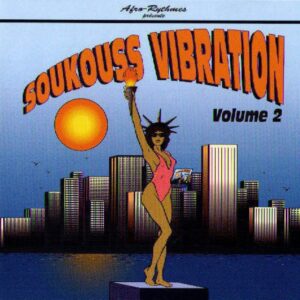
Ndombolo
Ndombolo is a genre that emerged in the 90s, as a faster and more energetic version of Soukous. Ndombolo is known for its catchy beats and sensual dance moves, which involve shaking the hips and waist. Ndombolo has often been a subject of controversy, due to its perceived sexual nature and political messages. Some Ndombolo songs have been banned or censored by authorities in Congo and other African countries. However, Ndombolo remains very popular among the youth and the diaspora, who enjoy its lively and expressive style. Ndombolo has also influenced other genres, such as Afrobeat and Coupé-Décalé. Ndombolo is a genre that celebrates the Congolese culture and identity, and invites people to dance and have fun.
Another unique aspect of Congolese music is the practice of ‘Mabanga‘. It involves dropping the names of influential people such as politicians and wealthy patrons in the songs, a clever tactic to secure patronage and support. This is still prevalent among lesser-known artists who rely on such benefactors to build their careers.
While our focus is the women who’ve shaped Congolese music, it’s essential to acknowledge the men who’ve contributed to its rich tapestry. Pioneers like Dr. Nico, Tabu Ley Rochereau, Grand Kalle, Pompon Kuleta, Wendo Kolosoy, Madilu System, and Papa Wemba played instrumental roles in developing the distinct Congolese sound.
Our journey through the Congolese music landscape has only just begun. The stage is set, and the rhythm is pulsating – it’s time to meet the women who’ve dared to carve their names into this traditionally male-dominated field.
Spotlight on Female Artists
In our exploration of Congolese female musicians, we’ve chosen not to follow any particular order. Their stories are equally compelling, their music equally resonant, and their impact equally significant. Instead of imposing a sequence that might inadvertently prioritize some artists over others, we’ll introduce these trailblazers in a manner that celebrates their uniqueness. We invite you to journey with us, discovering each artist in turn, not by their timeline, but by the rhythm of their stories.
M’Pongo Love (1956-1990)
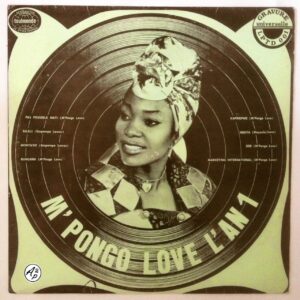
Born Arlette Siari Tchato M’Bar in 1956, M’Pongo Love was one of the most popular Congolese singers of her time. Known for her soulful voice and emotionally-charged performances, she rose to fame in the 1980s with hits like “Pas Possible Maty”. Her music, deeply embedded in the traditional Congolese style, dealt with real-life issues, and often had a melancholic undertone.
M’bilia Bel (born 1959)
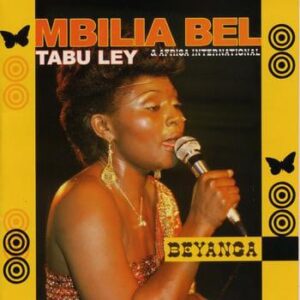
Often referred to as the ‘Queen of Rumba’, M’bilia Bel became an icon of Congolese music through her collaborations with Tabu Ley Rochereau in the 1980s. Known for her powerful voice and captivating performances, her hits like “Nakei Nairobi” and “Boyaye” are considered classics in the genre.
Lucie Eyenga (1934-1987)
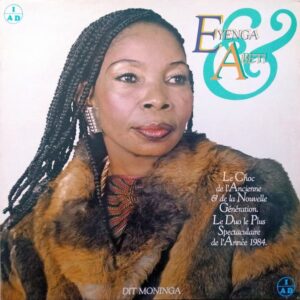
As one of the pioneering female voices in Congolese music. Eyenga, who was discovered in 1954, was known for her passionate singing and improvisation, which led to countless singles. She was one of Congo’s first female band members, singing with Orchestre Bella Bella in the 1970s, and one of the country’s most recognised female voices. Her gentle, sweet voice added a new depth to the Congolese Rumba scene. She died in 1987, but she left an indelible effect on Congolese music.
Abeti Masikini (1954-1994)
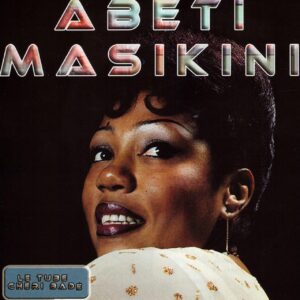
Known mononymously as Abeti, she was one of Africa’s most prominent female singers in the 70s and 80s. With her powerful voice and emotionally stirring performances, she defied societal norms and played a pivotal role in shaping the Congolese music scene. She was known for her hits like “Je suis fachée”.
Tshala Muana (1958-2022)

A singer, dancer, and politician, Tshala Muana is a multi-talented artist known as the ‘Queen of Mutuashi’ (Mutuashi being a traditional Tshiluba dance). Rising to fame in the 80s, she is well-loved for her energetic performances and songs like “Karibu Yangu”.
Faya Tess (born 1960)
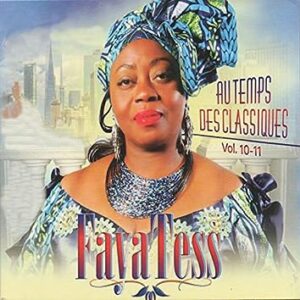
Faya Tess has been in the music scene since the 1980s, working with some of the legends of African music, such as Tabu Ley Rochereau, M’bilia Bel, and Lokua Kanza. Faya Tess has a powerful and expressive voice that can move you to tears or make you dance with joy. She sings in Lingala, French, and English, and covers a range of topics, from love and social issues to spirituality and culture. Faya Tess is not only a singer, but also a songwriter and a composer, who has released several albums of her own original songs. She is also a passionate advocate for women’s rights and empowerment, and a role model for many young female artists. Faya Tess is a true gem of African music, and a living legend of rumba.
While the spotlight was shone on six phenomenal female voices, it’s important to acknowledge that this list is far from exhaustive. The Congolese music landscape is vast and rich, teeming with countless talented female artists waiting to be discovered. It’s also a reality that sourcing high-quality information and music videos on youtube can be challenging, but that doesn’t diminish the importance of their contributions. Now, let’s shift our focus to the present and future, exploring the current music scene in Congo and the upcoming talents setting their mark on it.
Current Scene and Upcoming Talent
As we move into the contemporary landscape of Congolese music, it’s clear that the power and depth of the music has inspired a new generation of artists. While some have decided to experiment with various genres, others have stayed close to the heart of Congolese music, preserving the essence of Rumba, Soukous, and Ndombolo.
Celine Banza
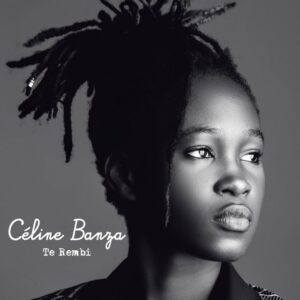
Celine Banza, winner of Radio France Internationale’s 2019 “Discoveries” award, is a notable figure in the Congolese music scene. Playing her guitar and utilizing her captivating voice, Banza’s music has a global appeal, with its soulful melodies and thoughtful lyrics. While her style might draw comparisons to international artists like Tracy Chapman, she continues to make her mark as an emerging talent from Congo.
Maud Elka
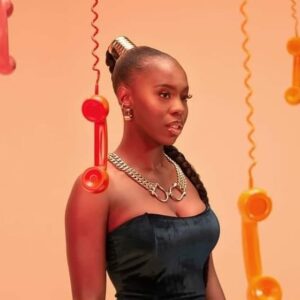
Maud Elka is a French singer of Congolese origin who blends different musical influences in her songs, from Congolese music to urban pop and Afro-American music. Maud Elka started her career in 2013, when she collaborated with the rapper Dinos on the song “Buzz”. Since then, she has released two EPs, “Maud Elka” in 2018 and “Seven” in 2020. Her songs are catchy, smooth, and soulful, with lyrics in French and Lingala. She has also worked with other artists, such as Alikiba on the single “Songi Songi”, which is a tribute to her Congolese roots. Maud Elka is a talented and versatile singer who brings a fresh and unique touch to the French music scene.
Sista Becky
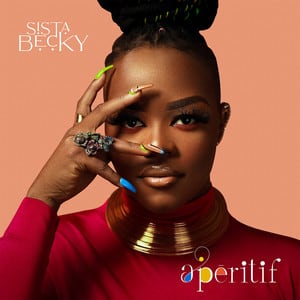
Sista Becky, also known as La Princesse Bantou, is a vibrant force in Congo’s music industry. As a rapper, songwriter, and dancer since 2016, she’s released numerous singles and leads her own music label, SB Entertainment DRC. Known for her witty and empowering lyrics, Becky stands as a leading voice in Congolese female rap. Apart from her music, she’s also a noted brand ambassador and social media influencer.
Conclusion
As our exploration of Congolese music comes to an end, one thing is clear: whether it’s the hypnotic rhythm of Rumba, the energetic beats of Soukous, the electrifying dance of Ndombolo, or the soulful strains of modern interpretations, Congolese music has a pulse that resonates far beyond its geographic origins.
We’ve met the pioneering women who dared to carve a path in a male-dominated field, their voices ringing out in a melodic challenge against the status quo. M’Pongo Love, M’bilia Bel, Lucie Eyenga, Abeti Masekini, Tshala Muana, Faya Tess – their songs are not just music, but anthems of resilience and creativity.
In the current music scene, Barbara Kanam carry this torch forward, keeping the spirit of Congolese music alive amidst an evolving landscape. And even as artists like Celine Banza, Maud Elka, and Sista Becky experiment with new sounds, the echo of the Congo can be heard, an indelible thread woven into their unique music styles.
But the song of the Congo isn’t confined to the past or the present – it is an ongoing symphony. And here is where you, the reader, have a role to play.
Now, more than ever, it’s crucial to support and elevate the voices that often go unheard. By listening to their music, sharing their work, and advocating for their recognition, you become an active participant in shaping the future of Congolese music.
So, take this moment as an invitation – to explore, to learn, and to discover. Venture beyond the mainstream and delve into the vibrant realm of Congolese music. Check out the “Musician” section on our website and tune in to the heartbeats of Congo.
In this melody of unity, every note counts. And your participation could be the one to carry the Congolese rhythm into a harmonious future.
If you’ve been captivated by these stories and find yourself curious for more, we’ve curated a special treat for you:
